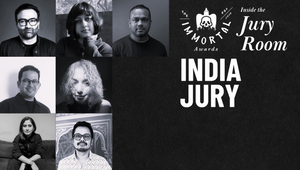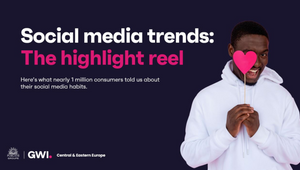
KINDRED’s Experts Bring ’Czechs and Balances’ to the Publicis Le Pont Team

Publicis Le Pont is Publicis Groupe's one-stop hub for digital transformation with speed, efficiency, and a consumer-first approach. It connects the talent and capabilities of commerce, content and production, data, technology, and creativity in Hungary, Poland, and Czech Republic.
Q> Before the deep dive, let us get something straight. Are you KINDRED or are you Publicis Le Pont? How does this setup work?
Gabriel Zabusek> KINDRED was an independent agency that Publicis Groupe CZ acquired in 2018. Following the acquisition, KINDRED became Publicis Groupe’s Centre of Excellence for data and technology-related services; and last year, we became a part of Publicis Le Pont, alongside our Polish and Hungarian CoEs (CoE: Centre of Excellence) united under the same leadership with a shared vision.
Adam Nykles> Our main responsibilities are MarTech (Marketing Technology) consulting as well as the digital transformation of marketing and sales operations of our clients. That covers a lot, from software engineering through personalisation and conversion rate optimisation to CRM implementation and management and customised data analytics.
Q> The digital landscape underwent significant changes in the last few years, and we haven’t even touched the topic of artificial intelligence. That said, if someone wants to be successful in the digital realm, they need more than a software or service offering: they need a platform to build on. In your opinion, what does a proper digital ecosystem look like in the world of platforms?
Gabriel Zabusek> Our ultimate goal is to deliver consistent omnichannel digital experiences. That requires a stable background, such as an integrated collection of technologies that enable a spectrum of capabilities from personalisation through content and digital asset management to commerce or first party data collection. We call this a Digital eXperience Platform or DXP for short.
Adam Nykles> If data is the new gold, then data collection and data flow is the forge, the essential tool to create exceptional tailor-made jewels. The availability and scalability of it is a key element of all digital ecosystems in the platform world. Companies today can utilise thousands of different technologies, however, if the data collection and data flow is not taken care of, this will only result in separate silos of the same data without a seamless user experience.
Q> Can you shed some light on how a DXP differs from a garden-variety Content Management System (CMS)?
Gabriel> It is a matter of complexity: a CMS is just one part of a well-functioning DXP. It is used for the central management of all digital content and assets, as well as its localisations. It should potentially handle offline use, for example, for publishers.
Adam> The most important factor is a consistent and data-driven customer experience across the whole funnel and all digital touchpoints. While a CMS is an important part of the whole process, we have to start working with potential customers way earlier, and we need to collect and manage their data even before the first brand engagement to leverage it for optimal utilisation. That means, having the right technologies, processes, and automated workflows in place even before the contract is signed.
Q> It is a common issue that companies often don’t know what data to collect and how to put what they collect to good use. Is it right to say that in the digital age, all companies should build mammoth IT-infrastructures, essentially creating their own Amazon or Facebook? In other words, is DXP suitable for everyone?
Gabriel> Not all companies should engage in building such complex structures, instead they should be smart and realistic about their goals. For instance, if a company wants to outsource e-commerce activities to a third partner, we should ask if they want to outsource all of it? What might seem like a convenient and cost-effective solution, might create risks for the company, therefore they should at least have a backup in the shape of their own D2C platform.
Also, if we’re talking about Facebook for example, it would make sense that Facebook-based campaigns lead to the clients' own digital touchpoints, e.g. their own websites and/or mobile apps. This is also an essential part of DXP because this way the client can collect leads directly and more importantly, retain ownership of their data. Being data rich is one of the four reasons platforms are winning.
As far as DXP goes, I’d say yes, it is for everyone, however a lot depends on the actual mix of technologies as well as the client’s goals and KPIs.
Q> With your expertise engaged, how can Publicis Le Pont catalyse the performance of its clients?
Adam> Firstly, we can rationalise the discussion that is pretty much ongoing at every company these days about platforms, data, digital transformation and other similar buzzwords that in reality, conceal insanely complex topics. These are undoubtedly important trends; however, it is very easy to get lost in a maze of slick expressions and lose sight of the end goal as well as your basic common sense when it comes to doing business.
More often than not, companies base their performance on a complex array of technologies, thereby missing the point that the key to performance lies in the methodical approach of utilising technology to find the answers to existing challenges, such as becoming more effective or scaling better. For this reason, we approach our client’s problems by understanding their business challenges, before going to work. We research and audit their actual state before suggesting the right approach and implementing the required steps. That said, technology is a fast-changing sector, so we do not just point the client in the right direction, we stay with them to support their technology usage, namely, we want to make sure they use technologies the right way, ensure proper adoption and optimise their use cases to enable them to keep increasing their business value. This is an often overlooked but critically important part of achieving positive ROI.
Q> With all that in mind, could you explain to our readers how your expertise connects to the other different capabilities found at Publicis Le Pont?
Gabriel> Think of it this way, Publicis Le Pont’s capabilities are like standalone ’gears or cogs’ that you have to put together in a certain way to ensure great and reliable transmission to meet each and every client’s needs. We bring our data and tech expertise to the table to complement the team, enabling Publicis Le Pont to deliver on its promise, being a one stop hub for all digital activities.
Q> In your opinion what are the five most important mistakes that companies should avoid in the platform world?
Gabriel> We already mentioned the first one, it’s a classic: having your MarTech-stack scattered across different departments, brands, or countries. That fragments your data and hampers a smooth information flow. Another significant mistake is having slow digital touchpoints that are not properly optimised. According to an Amazon A/B testing, every 100 milliseconds of page loading delays cost about one percent of sales. Companies must use proper analytics and testing; without that, they are only relying on their hunches.
Locking yourself into a single ecosystem or platform is another thing to avoid. This solution is not scalable and modular enough, making it hard in the long term, for any sort of change, migration or exit very difficult. The worst scenario? It is when a client develops a bespoke solution from scratch – think CMS or CRM – that makes the least sense of it all.
Adam> It is also good to avoid trying to do everything at once or trying to go too fast without the proper foundations such as an initial audit, clear-cut processes or data consolidation. This usually results in millions in wasted funds, because without a realistic roadmap to digital maturity and the required methodical approach, things can get very messy, very soon.
A lack of focus on the continued optimisation of technology usage and the adoption of new methods can also hamper a company’s efforts to achieve success. Companies often make the mistake of buying new tech, hiring someone to make it work and expecting it to become a moneymaking machine. However, every tool, from a shovel to spaceship, is only as good as the people using it the right way, after mastering its learning curve, of course.
Q> How do you see DXPs evolving in the years to come?
Gabriel> It will only become more and more important, as personalised experiences will shift from nice-to-haves to must-haves. And with the ever-growing amount of data that we generate and utilise, companies that fail to get their things in order, will inevitably fall through the cracks. Especially now, as we are seeing the emergence of AI as a force that will influence all aspects of our lives. DXPs can harness the power of AI when it comes to customer care, support, personalisation, recommendations, asset variations, and much more.
Adam> AI will become essential parts of DXPs, as marketing automation, in general, drives value by reducing costs and increasing effectiveness. Generative AIs, systems that produce content or perform tasks autonomously will undoubtedly take over even more tasks and may even unlock the Holy Grail of true real time one-on-one communication, which today is more of a buzz than reality.















